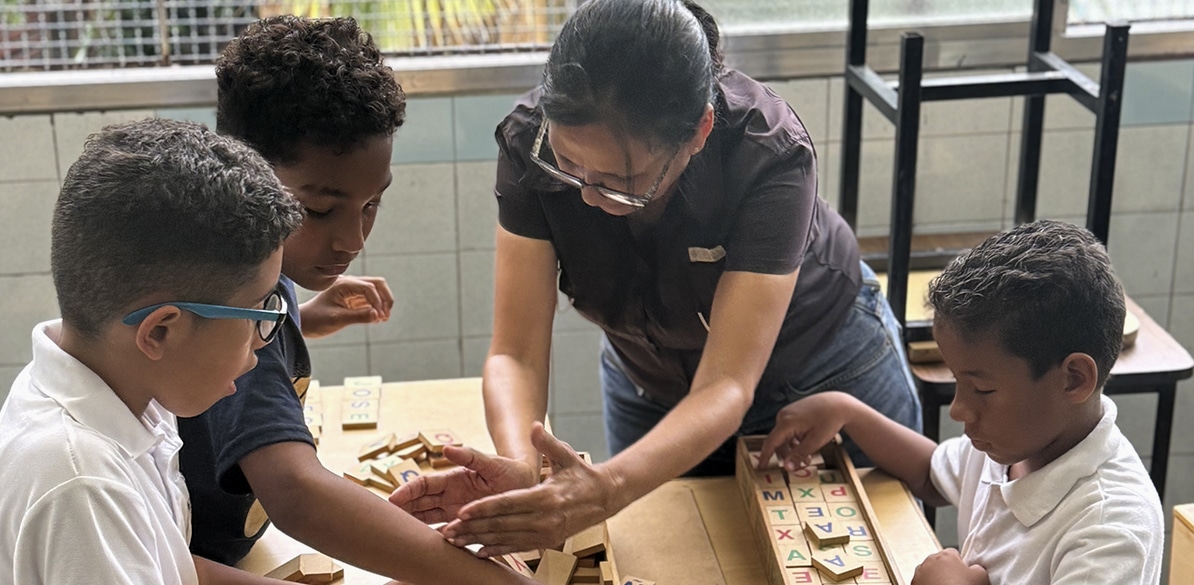Comprehensive care for vulnerable families in La Guaira – Venezuela
Educational training and health support for children and young people so that they can become agents of change in their own communities

Current Project
The comprehensive community care project in Venezuela, developed by the La Guaira Diocese at the Madre Emilia School in Maiquetia, serves families who have very low incomes and who are therefore particularly vulnerable.
The precarious situation of these families prevents them from being able to obtain sufficient food. In addition, this circumstance means that they have to send their children to work at a very early age so they can help support the household. School dropout rates in this community are very high.
The goal is to create an alternative for these families, so that children and young people can progress through their studies and receive the training they need for their human, academic and professional growth. The institution also provides medical and psychological support through partnerships with the San Pedro Apóstol Foundation and San José Hospital, as well as with primary care centers and the Diocese’s medical banks, as well as the community pharmacies located in the parish that distribute the necessary medicines.
The project beneficiaries are between 8 and 22 years of age and they need to develop competencies and capabilities that will enable them to strengthen their personal growth and life skills. They usually have a low level of literacy, reading comprehension and numerical skills and are particularly behind in technological and digital skills. They also need to develop and strengthen their social, communication, cultural, safety and self-knowledge skills.
The project provides education in human and moral values, through courses and workshops in learning areas that are necessary for life in society, specifically by promoting solidarity and social action groups, as well as group integration activities. The goal is for these children and young people to become agents of change within their own communities.
